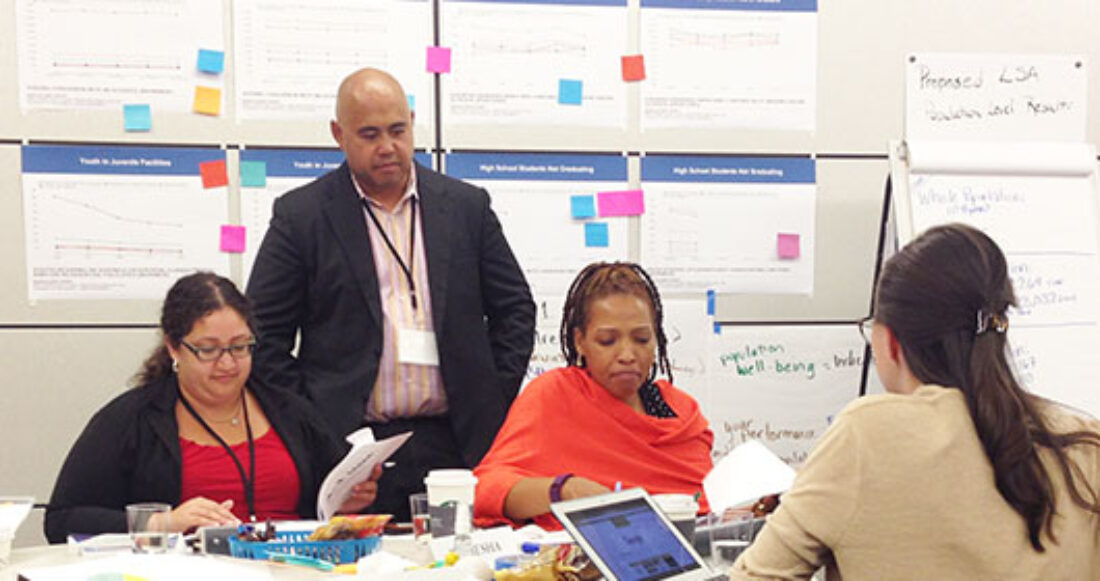Lutheran Services in America Advances Measurable Results for Kids

Lutheran Services in America, one of the largest nonprofit health and human services networks in the United States, recently tapped the Casey Foundation’s expertise in results-based leadership (RBL) to enhance the impact of its work on behalf of vulnerable children and families.
This collaboration has been helping network leaders develop core competencies and skills that have already led to measurable improvements in such areas as adoption and school readiness. In the RBL program, 4,000 youth and their families are on track to achieve better outcomes because of network leaders’ focus on data-driven decision making and strategies.
“RBL is a set of tools and techniques our members are learning to achieve actual demonstrable results,” says Alesia Frerichs, vice president of member engagement at Lutheran Services in America. “It’s not like you read a book and go back to your work and wonder how it applies. RBL is interwoven with the common challenges we face as multi-service, multi-state organizations, trying to nurture children and ensure they are on a pathway to successful adulthood.”
Lutheran Services in America’s introduction to developing an outcomes-focused culture was when it participated in the provider network of the Casey Foundation’s Child Welfare Strategy Group. When Frerichs indicated that her organization wanted a better understanding of how people’s lives were improved by its work, the Foundation suggested RBL as a way to help achieve and measure change among a population of people.
“Determining how many lives we’re impacting makes RBL incredibly rich. But more importantly, knowing how people’s lives are better is the real point of RBL,” says Frerichs.
New leadership skills, notes Frerichs, are particularly important to the organizations that make up Lutheran Services in America because of the complex, dynamic climate in which they operate. Many organize refugee resettlement or otherwise assist refugees and immigrants.
The network also cares for a broad, diverse population covered by Medicaid. A recently proposed multi-billion dollar cut in federal Medicaid spending, which would severely impact seniors, people with disabilities, children and families, required a rapid response of outreach and advocacy.
Among Lutheran Services’ organizations, the demand for leadership-skill building was strong. The national office selected 10 member organizations for the program and worked closely with Casey staff and the Foundation’s RBL faculty to design a 10-month program focused on data analysis, race equity and opportunity, collaboration and application to the work in their organizations and systems
The following organizations are participating in Lutheran Services in America’s RBL program:
- Lutheran Family Services Rocky Mountains
- Lutheran Services Carolinas
- Lutheran Services Florida
- Lutheran Social Services of Indiana
- Lutheran Social Services of Minnesota
- Lutheran Social Services of New York
- Lutheran Social Services of South Dakota
- Lutheran Social Services of the National Capital Area
- Upbring (Texas)
- Wellspring (Michigan)
After a deep data dive, each of the 10 organizations is setting — and refining — its own targets for measurably improving the live circumstances of children they serve. For example, the near-term goal of Lutheran Services of South Dakota is to have 560 fewer minority youth involved with the juvenile justice system.
Public accountability for achieving target goals is built into the program. The organizations will present their results through May 2017 at a final seminar. The group will reconvene in January 2018 for a last accountability session to report on results through the end of 2017. Lutheran Services in America will share the work of the 10 pilot organizations with the broader network.





